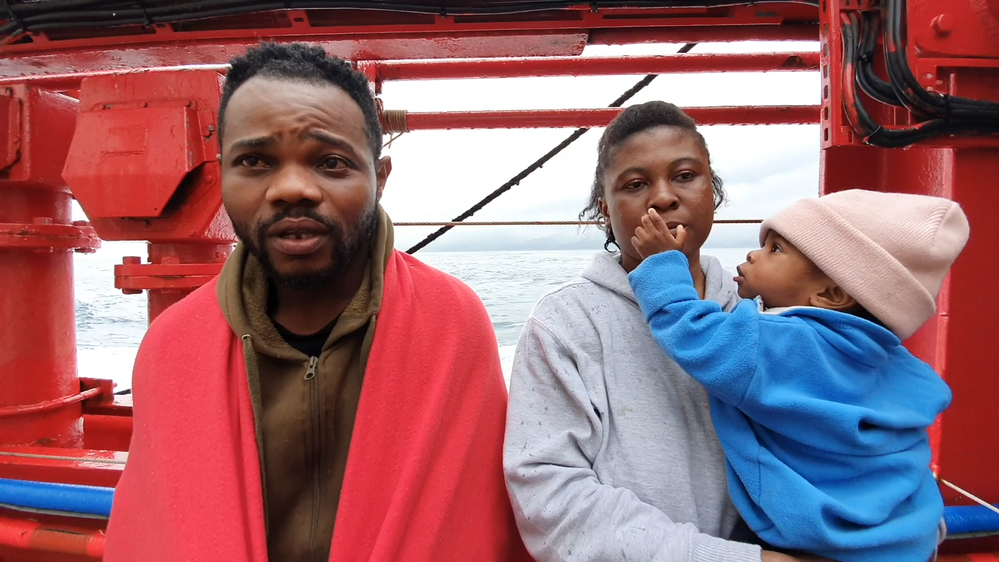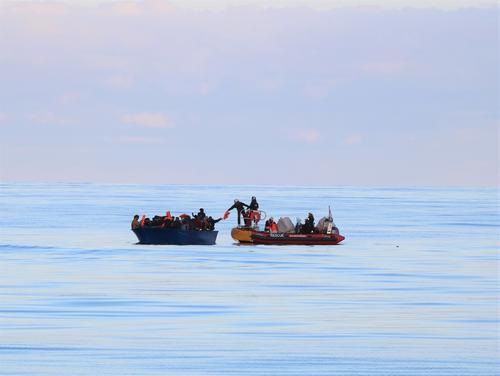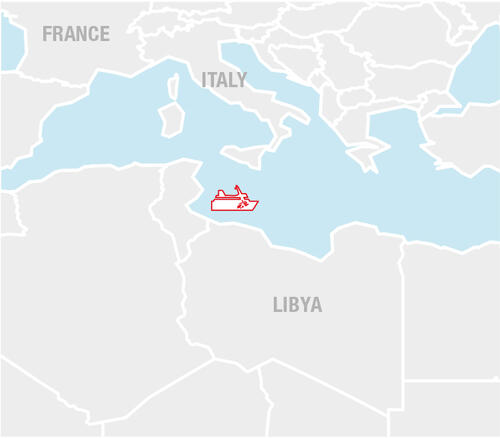
3,660
3,66
For thousands of migrants and refugees caught in war-torn Libya, attempting a deadly journey across the Mediterranean is their only hope of escape. Without dedicated search and rescue interventions, to save them from unseaworthy and overcrowded boats on the high seas, their desperate attempts are too often doomed to end in tragedy.
No one knows how many men, women and children have lost their lives while trying to make the crossing over the years. In 2019, at least 743 people drowned off the Libyan coast, according to the International Organization for Migration. In an interview with the German news magazine Der Spiegel, a Libyan coastguard official said half the boats that departed Libya during the year may have sunk undetected, without survivors.
As EU states failed in their responsibilities to save human lives in the Mediterranean, MSF took the decision to go back to sea in July 2019, seven months after our previous shared vessel, the Aquarius, was forced to cease operations.
By the end of December, the Ocean Viking had rescued 1,107 people from flimsy boats in distress. The continued lack of a coordinated response at sea or adequate disembarkation mechanisms resulted in drawn-out suffering for survivors. Safe ports for all these survivors were granted in Italy or Malta, in line with international and maritime law, but this often came after an unnecessarily long time on board, waiting for the authorities to assign a place of safety. In August, 356 vulnerable people had to wait for 14 days on board before being allowed to disembark.

A family testimony aboard the Ocean Viking
I have seen victims of sexual violence and treated people who suffered brutal beatings, electrocution, torture – including by melting plastic – and war-related wounds. A third of my patients are children under the age of 18.Luca, an MSF doctor working on board the Ocean Viking, October 2019
The people we rescued came from African countries – such as Sudan, Libya, Somalia, Eritrea, Nigeria and Ethiopia – as well as from Bangladesh, Yemen, Syria and elsewhere in Asia and the Middle East. All had endured horrific violence in Libya, caught up in endless cycles of detention and abuse. Many had attempted the crossing numerous times.
In the onboard clinic, the MSF medical team treated patients for hypothermia, dehydration and seasickness. Many patients also had burns resulting from prolonged contact with fuel and saltwater at the bottom of rubber boats, and skin infections caused by terrible hygiene conditions in their places of captivity. Our teams sutured the visible wounds and tried to provide some relief for the invisible ones.
With growing insecurity in Libya, people continued to attempt the crossing over the winter, despite the increased risks. European governments were aware of and acknowledged the dangers faced by migrants and refugees in the country, yet they still supported the Libyan coastguard, who, in 2019, returned over 9,000 vulnerable people to the same circumstances that they attempted to escape from in the first place. MSF continued to highlight the unimaginable human price being paid for these policies of interception and detention and advocate more humane responses based on what our teams witness first-hand.

















